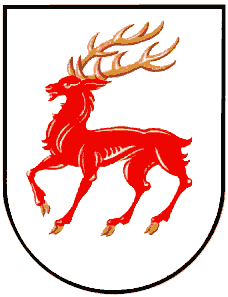Ignoble, without Place, Position, or Gentility
One of the most attractive features of the Ireland that emerged after independence in 1922 was a fierce distaste for inherited privilege. Age-old peasant begrudgery prompted it, and its official effect was straightforward. The Irish Constitution forbids the state to confer titles of nobility, and forbids Irish citizens to accept titles of nobility or "honour" except in extraordinary circumstances. Uniquely in the English-speaking world, there is not even a civil honours system.
That's that, then. Sceptre and crown have tumbled down and in the dust been equal made. Well, not quite. The lure of blue blood lives on in the Republic; the very absence of an official system has allowed the emergence of grey areas where abuse can flourish. Before looking at a salutary example, some background.
Until the final collapse of Gaelic society in Ireland in the seventeenth century, a highly stratified culture existed in which local "Chiefs of the name" held sway over relatively large territories. Unlike the feudal system, however, authority was tribal rather than territorial, in the sense that it derived from kinship with those who were governed and not from the ownership of property. Succession to that authority was not by the feudal system of primogeniture, through the eldest son, but by election within a restricted family group. Election or no, this was a long way from democracy, since eligibility for election depended in effect on membership of a small elite. In other words an aristocracy of sorts, though one which had become defunct by the start of the eighteenth century.
For two hundred and fifty years it remained defunct, until 1943, when responsibility for the old Ulster Office of Arms passed to the government of the Republic and it was renamed The Genealogical Office. The first Chief Herald, Dr. Edward MacLysaght, a passionate Irish nationalist as well as a superb scholar, must have been a little nonplussed to find himself in charge of an Office dedicated almost entirely to recording the inherited privilege of the now-displaced Anglo-Irish ascendancy. In an attempt to redress the balance, he instituted a system of courtesy recognition of the old Gaelic titles for those individuals who could prove senior descent in the male line from the last inaugurated Chief.
Which brings me to the strange case of MacCarthy Mór. In 1992 the Office accepted a claim by a Terence Francis McCarthy to be the senior male descendant of the last MacCarthy Mór (literally "Great MacCarthy"), chief of the leading family of the Eoghanacht dynasty that ruled much of Munster for almost a thousand years. Among the other titles this individual subsequently acquired were: Most Orthodox Prince, Knight Grand Cross of the Imperial Ethiopian Order of the Seal of Solomon, and the Holy Trinity, Grand Officer of the Royal Albanian Order of Skanderbeg, Knight of the Royal Portuguese Order of Saint Michael of the Wing and Lord of Kerslawny, Hereditary Head of The Niadh Nask.
As head of this last, an Irish "chivalric order" he had plucked out of thin air, McCarthy sold memberships and associated titles to more than 400 individuals, many of them quite prominent, whose only flaw was a little too much pride in their Irish heritage. The whole edifice finally came tumbling down in 1999, when the then Chief Herald declared the courtesy recognition of MacCarthy Mór to be "null and void" and the pedigree on which it was based to be "without genealogical integrity". As a direct result of the affair, the entire practice of courtesy recognition of Chiefs was discontinued in July 2003.
In a counterblast against the Genealogical Office in 2000 disputing its right to grant arms, MacCarthy asserted that the Office's clients "remain ignoble and enjoy neither place, position, nor gentility". Indeed. Long live begrudgery.
